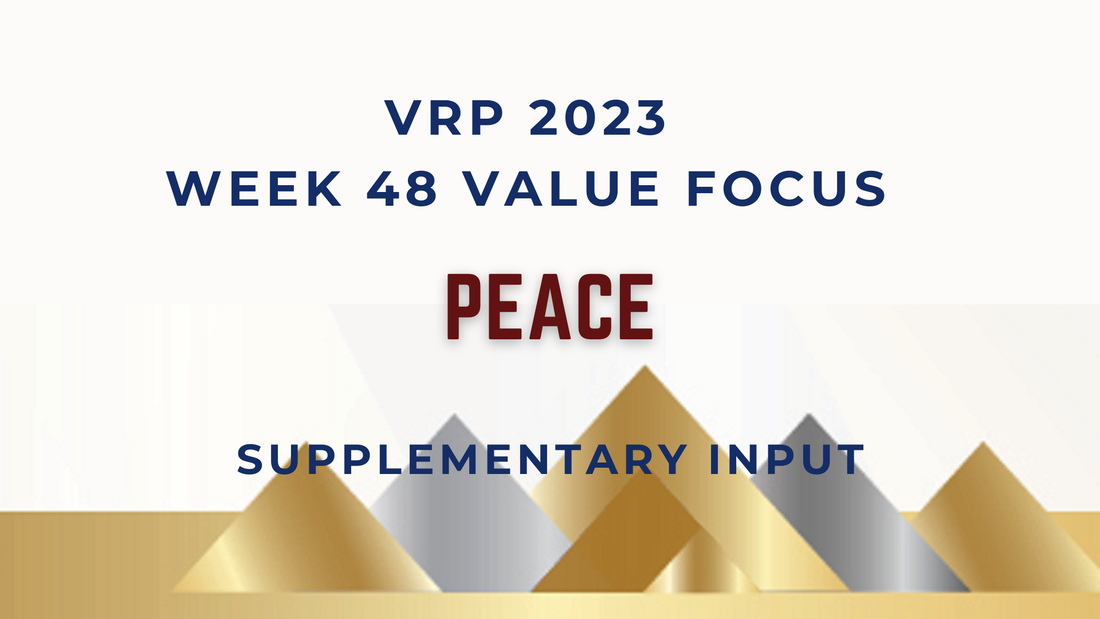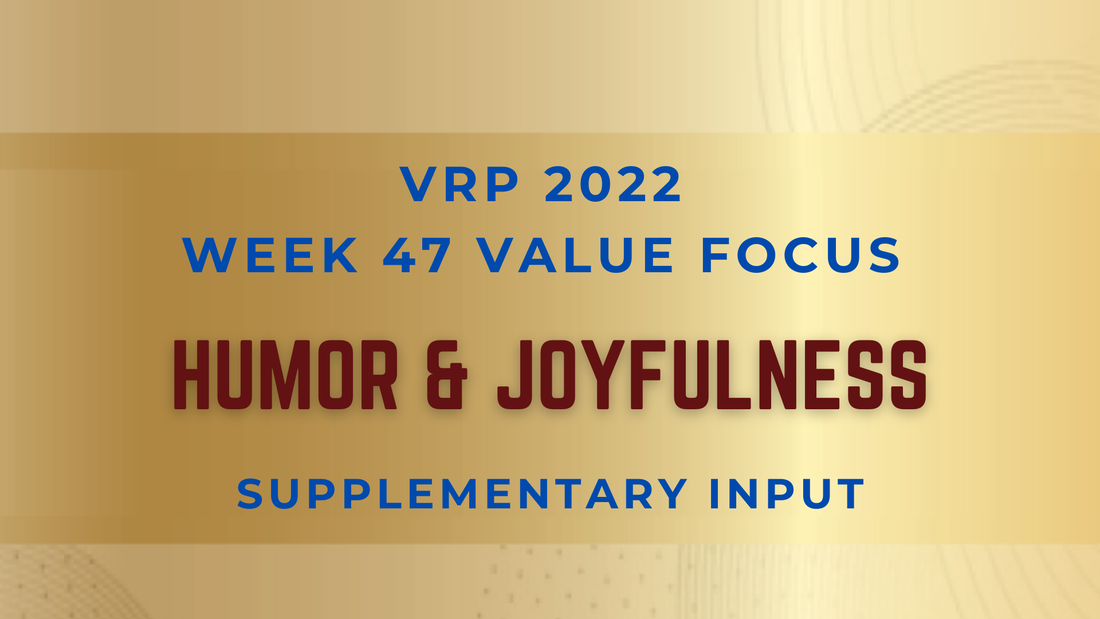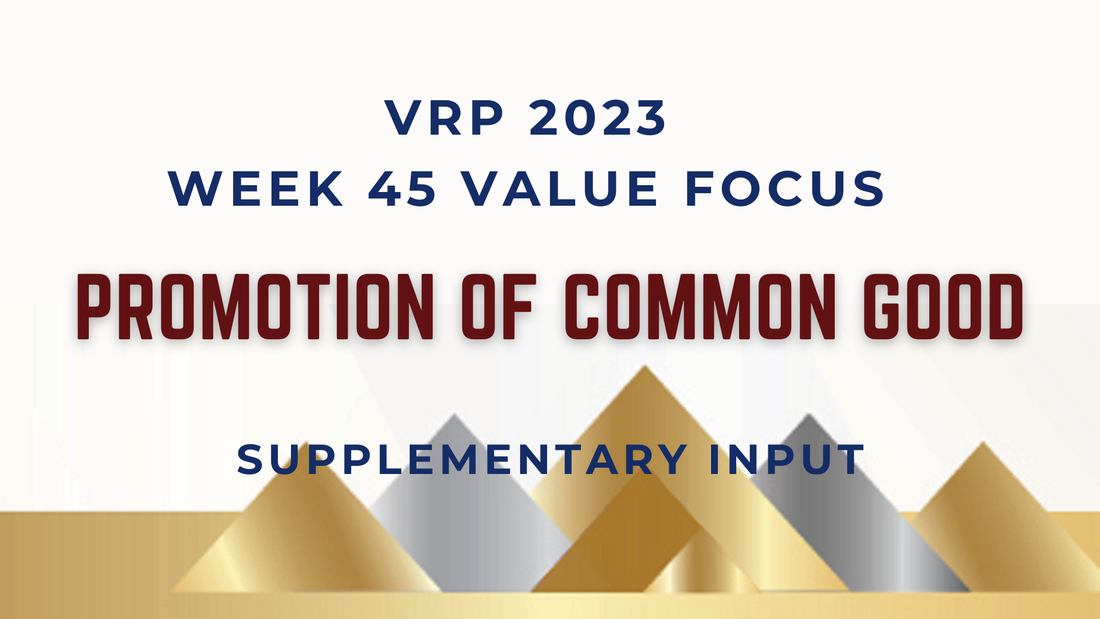|
by: Micah A. Tecne In this world that is full of disturbance, chaos and tribulations, who would not want to be delivered from it? To have the freedom from disquieting or oppressive thoughts or emotions? Oh, when we can lie asleep with nothing to worry of. To have a moment where we feel safe and quiet. A moment of tranquility. Having peace, lasting peace.
We can temporarily have it by building structures with strong foundations, inspiring calm environments, choosing calm and perfect people, pursuing fame, wealth and power and other sources of peace that we can think of. We can attain them all but again, it is just temporary. One that may last for some time but it will eventually end. We hear stories of wealthy, famous, and powerful people who fell into severe depression and worst, some have taken their own lives thinking that they will finally rest in peace. We find buildings constructed by skilled and prominent builders break and fall. We see beautiful and calm places where we find safety destroyed by calamity. Wealth, power and fame can be lost overnight. This is the sad reality about relying from the wrong sources of lasting peace, security and refuge. Temporary sources bring temporary peace. These sources are counterfeit authors of peace. The one and only Author of peace is He who can bring us to the safest and calmest place. For He is not the author of confusion but of peace. He is the Lord of peace the source of it at all times. Having Him is having peace. A comforting voice telling us in times of chaos and disturbance to not be anxious about anything, but in everything by prayer and supplication with thanksgiving let our requests be made known to Him. For in Him we can both lie down in peace, and sleep; for He alone makes us dwell in safety.” Who is the author of our peace in this turbulent world? If were pursuing peace from temporary sources at all cost in the past, will we also be willing to pursue its authentic source? Knowing that the peace that He can give us is the peace that the world cannot give, it’s the peace that the world cannot understand. We cannot deny the fact that bad circumstances, people and emotions are present but peace is also in our reach. The Almighty God is present as He promised that in me Him we may have peace. In the world we will have tribulation. But take heart; He has overcome the world.” If we want peace, we are going to be needing Him. Who in this world does not want peace?
0 Comments
by: Mr. Nathaniel A. Saquiban As the Christmas season is closely approaching, everyone can feel the spirit of joy in the air. There is a sense of excitement in every heart to welcome the happiest season of the year. Happiest because it is known as the holiday season where family members from different parts of the Philippines and abroad take their holidays, gather together, and get to see each other over some food preparations. It is also a time when relatives and friends fellowship with one another. There is a festivity everywhere. Town plazas, gardens, and tourist destinations are arrayed with Christmas decorations and lights where residents and tourists congregate and enjoy the surroundings.
It is a joyful time of the year, a time of celebration, a time of gift-giving. It is a traditional practice that was handed down from generation to generation since the birth of Jesus Christ, the Messiah, the Savior of the world to which even the non-Christians subscribed and celebrate the same. We rejoice because salvation has come to the world at last. No longer that the world will be doomed to destruction as redemption has finally arrived to all mankind. This brings joy to all of us more than anything in this world. It is a gladness from God that the world cannot give because of the feeling of a glorious hope for a better future. That hope is the hope for eternal life as people are reconciled back to God. Christmas season, thus, is commonly considered a time of reconciliation, a time to love and forgive one another. Joyfulness, however, should not be seasonal and neither should only be during Christmas season. Joyfulness should be an everyday disposition. It should not even be inspired or impelled by outside factors but rather by internal factors. It is sustained by the work of God resulting to inner gladness rather than the effects of earthly entertainment. It is viewed as lasting in nature rather than temporary. Humor, on the other hand, is normally an attitude, behavior, or personality. It is the ability to be comical or funny or the ability to create a joyful atmosphere. It is the ability to generate laughter or smiles to other people. It is conveyed by actions, reactions, facial expressions, or words such as funny stories or verbal responses. Humor and joyfulness, compounded as one, is not only a character or personality. It is a value which is very vital for teamwork and unity. It is an essential ingredient to boost the morale of employees in a working environment. It gives a light atmosphere conducive for labor. It subdues all forms of heaviness caused by challenges in life. It is the ability to become resilient over negative circumstances, thereby, producing excellence in the workplace, both in the conduct of personnel and their corresponding outputs. The ability to be humorous and joyful signifies the fact that the person concerned is unaffected by adverse situations. That person is above and not beneath, head and not the tail, over and not under his or her present problems. Let us therefore nurture the value of humor and joyfulness because it is instrumental for efficient and effective performance of duties and responsibilities in any fields of endeavor. Jesus V. Sison, PTRP, CRFV Deputy National Director Jesus asked Simon Peter, “Simon son of John, do you love me more than these?”
“Yes, Lord,” Peter replied, “you know I love you.” “Then feed my lambs,” Jesus told him. It was early in the morning as fishermen are about to return from the sea to mend their nets after toiling all night without catching any fish. Suddenly, Jesus, the Good Master appeared along the shore and directed them to launch their nets on the right side of their boats. It was a miracle of catching an enormous number of fishes and yet the nets won’t break. After having their breakfast with the Master, He asked one of the fishermen if he loves Him more than all the bounty and great things they witnessed that day. The obvious answer was “Yes, You know I love You.” With that, a command was given to feed the lambs and the sheep. God Himself desired that every person experience His miracles, for every human being was designed to be blessed and not be cursed; created to take care of the creation and to bring in order. In doing so, He blessed and provided for everyone but with a stern reminder that men and women everywhere must take care of others. Blessed to be a blessing, strengthened to strengthen, loved to love, cared for to take care of others. In interconnected and cohesive communities, societal order is established because people trust each other, helps one another, able to work together, feel part of a communal identity and practice shared values to generate a common good. Even among multicultural societies, once members of that society lay aside selfish ambitions that are detrimental to relationships; as they shut down greedy motives and self-serving intentions; instead, respect, honor and think of how to make or help others be better-off, promotion of common good becomes evident. In turn, these societies tend to be more contented, happier, more progressive and peaceful. Moreover, promotion of common good leads us to have meaningful lives and become fulfilled individuals as it is "the sum total of social conditions which allow people, either as groups or as individuals, to reach their fulfillment more fully and more easily" . Thus, we have to rediscover who we are, our vocation as citizens and our respective roles in our community. The value of the common good, to which every facet of social life must be associated stems from the dignity, unity and equality of all people. In rediscovering who we are and what is our purpose, common good teaches us to seek what’s best for everyone, beginning with the last, the least, the lost, the most vulnerable, the marginalized and the most forgotten. Common good does not consist in the simple sum and contribution of the particular goods and materials of each person. It also includes actions and ideas that is oriented to bring about progress of other people. Actions that are voluntary, not demanded and generous engagement of a citizen in social interchange. Common good consequently calls that all must participate, each according to his position and role. This responsibility is integral in the dignity of the human person. Simple acts are achieved first of all by taking charge of the areas for which one assumes personal responsibility: by taking care of his/her own family, by conscientious work in his/her workplace, and so forth, the man and/or the woman participates in the good of others and of community. It therefore results to order in our society that is “founded on truth, built up in justice, and animated by love". When the Lord Jesus Christ taught people to love their neighbors as themselves and treat others as they would be treated, He was teaching people to seek the Common Good. When Saint Paul said, “Do not seek your own personal interests alone, but also the interests of others,” he was teaching the Common Good. When Saint John said, “Since God loved us so much, we also ought to love one another,” he was teaching the Common Good. When Jesus, our Lord and Savior said, “Whatever you do for the least of these, you do for me,” He was inviting us to seek the Common Good. Common good is not about pulling down individuality or suppressing divergence, but recognizing the importance of interconnectivity and social bonds for the flourishing of every citizen. It includes the appreciation of the value in citizens coming together to carefully ponder on the meaning of a just and humane society. When we encourage civically-minded, active and responsible citizenship in the ideals of the common good, we find fulfillment as human beings. In the midst of flourishing individualistic, self-indulgent, egotistic and meritocratic forms of human success, an emphasis on the common good can help restore social order as there will be trust, justness, sincerity, dignity, respect, mutuality, service to others, and humility. As this message came to prophet Zechariah from the Almighty God: “This is what the Lord of Heaven’s Armies says: Judge fairly, and show mercy and kindness to one another. Do not oppress widows, orphans, foreigners, and the poor. And do not scheme against each other. We then loved one another and lived to promote common good. |
CRFV Winning TeamA company of men and women who have committed their lives to the cause of national transformation. Archives
July 2024
Categories
All
|
Our Services |
Our Organization |
SupportSupport Page
FAQ Terms of Use |
Copyright © 2015 | Baguio City, Philippines 2000 | 074-424-1497 | [email protected]




 RSS Feed
RSS Feed
